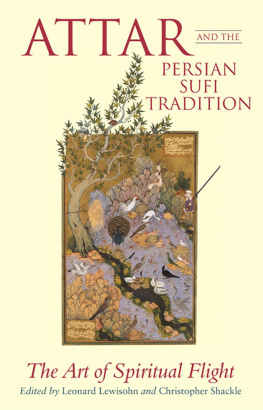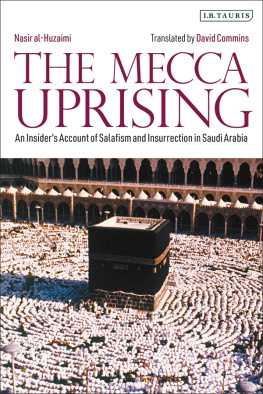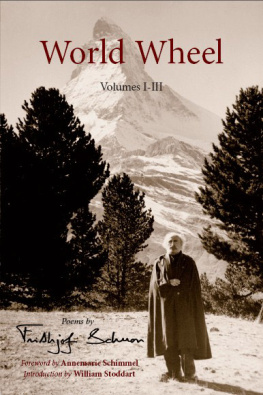First published in 1993 by
Kegan Paul International
This edition first published in 2010 by
Routledge
2 Park Square, Milton Park, Abingdon, Oxon, 0X14 4RN
Simultaneously published in the USA and Canada
by Routledge
711 Third Avenue, New York, NY 10017
Routledge is an imprint of the Taylor & Francis Group, an informa business
Islamic Publications Limited 1993
All rights reserved. No part of this book may be reprinted or reproduced or
utilised in any form or by any electronic, mechanical, or other means, now
known or hereafter invented, including photocopying and recording, or in
any information storage or retrieval system, without permission in writing
from the publishers.
British Library Cataloguing in Publication Data
A catalogue record for this book is available from the British Library
ISBN 10: 0-7103-0455-2 (hbk)
ISBN 13: 978-0-7103-0455-1 (hbk)
Publishers Note
The publisher has gone to great lengths to ensure the quality of this reprint
but points out that some imperfections in the original copies may be
apparent. The publisher has made every effort to contact original copyright
holders and would welcome correspondence from those they have been
unable to trace.
The Institute of Ismaili Studies,
London
The Institute of Ismaili Studies was established in 1977 with the object of promoting scholarship and learning on Islam, in the historical as well as contemporary context, and a better understanding of its relationship with other societies and faiths.
The Institutes programmes encourage a perspective which is not confined to the theological and religious heritage of Islam, but seek to explore the relationship of religious ideas to broader dimensions of society and culture. They thus encourage an inter-disciplinary approach to the materials of Islamic history and thought. Particular attention is also given to issues of modernity that arise as Muslims seek to relate their heritage to the contemporary situation.
Within the Islamic tradition, the Institutes programmes seek to promote research on those areas which have had relatively lesser attention devoted to them in secondary scholarship to date. These include the intellectual and literary expressions of Shiism in general, and Ismailism in particular.
In the context of Islamic societies, the Institutes programmes are informed by the full range and diversity of cultures in which Islam is practised today, from the Middle East, Southern and Central Asia and Africa to the industrialized societies of the West, thus taking into consideration the variety of contexts which shape the ideals, beliefs and practices of the faith.
The publications facilitated by the Institute will fall into several distinct categories:
- Occasional papers or essays addressing broad themes of the relationship between religion and society in the historical as well as modern context, with special reference to Islam, but encompassing, where appropriate, other faiths and cultures.
- Proceedings of conferences or symposia.
- Works exploring a specific theme or aspect of Islamic faith or culture, or the contribution of an individual figure or writer.
- Translations of literary texts.
- Editions or translations of significant texts of a primary or secondary nature.
In facilitating these or other publications, the Institutes sole aim is to encourage original, interesting and mature thought, scholarship and analysis of the relevant issues. There will naturally be a diversity of views, ideas and interpretations. The opinions expressed will be those of the authors.
The present publication falls into the category 4 listed above.
Introduction
Originality, learning, sincerity, enthusiastic faith, fearlessness, contempt for time servers and flatterers, and courage hardly to be found, so far as I know, in any other Persian poet these are the qualities of Nir-i Khusraw according to the great British orientalist E.G. Browne, whose deep study of one of the most remarkable men of this epoch made him hope to write a biography of the Persian poet-philosopher a hope which, alas! was never fulfilled. Even despite the penetrating studies of W. Ivanov and Henry Corbin, nobody (except Mehdi Mohaghgheg) has tried a full evaluation of Nir-i Khusraws comprehensive collection of poetry, his Dvn, which has been edited several times.
The work of the Persian author in both its philosophical and poetical aspects has been known in the West for more than a century. Around 1880, one observes an increasing interest in his writings: Hermann Eths edition and German verse translation of the Rawshannma in the Zeitschrift der Deutschen Morgenlndischen Gesellschaft 1879 and 1880 should be mentioned as the first major attempt to understand Nir-i Khusraw; this study was followed by E. Fagnans translation of the Sadatnma, again in 1880 in the same scholarly German journal. Eth himself published some translations of qadas in the year 1882.
At that point, C. Schefers edition of Nir-i Khusraws Safarnma, his travelogue, had just appeared; in his French introduction Schefer gave a good survey of the history of the authors biography in the Persian literary tradition so that the Safarnma remained an important introduction to medieval descriptive prose literature for many European students of Persian. Its recent English translation by Wheeler M. Thackston makes the important, informative text available to the English-speaking public. As for Nirs central role as scholar and philosopher in the Ismaili tradition, it has been lucidly shown in the edition of his late prose work, Jmi alikmatayn, by Henry Corbin and Mohammad Moin, recently translated into French by Isabelle de Gastines.
Nir-i Khusraws name was quite well known to the historiographers of medieval and modern Iran, although his personality is often shrouded in myths. The first reliable account occurs in Rashduddns World History who even mentions that Nir might have been instrumental in converting asan-i Sabb to Ismailism, and some of his verses are mentioned in works like amdullh Mustawfis Trkh-i guzda, Dawlatshhs Tadhkirat and Khwandamrs abb as-siyar, as well as in the strange survey of religions from the late seventeenth century, the Dabistn-i madhhib. But the three heretical verses usually ascribed to him are not found, as E.G. Browne pointed out, in the Tabriz edition of the Dvn. Jm has cited him in his Bahristn, and in later times Luf Al Beg mentioned the poet-philosophers alleged autobiography in his tashkada.
For Nir-i Khusraw was soon surrounded by legends and strange tales. His pseudo-autobiography, frequently quoted by later authors, consists of a patchwork of popular tales, often from the fairy-tale genre, as E.G. Browne has shown in his article in the Journal of the Royal Asiatic Society 1905. A particularly interesting tale about our poet-philosopher is found in Dawlatshhs Tadhkirat (pp. 69 if.) which contains some correct and some rather, many incorrect statements. He writes:
Nir-i Khusraw came originally from Isfahan. Some say he was a monotheist and gnostic; some blame him claiming that he was a nature philosopher and atheist, dahr, and believed in metempsychosis. And God knows best. In any case, he was a philosopher,









